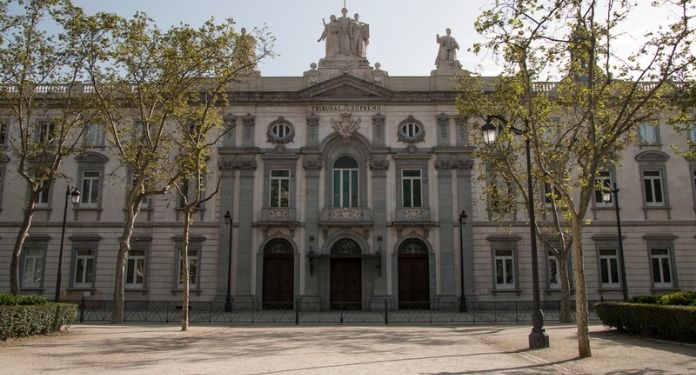The Administrative Chamber of the Supreme Court summoned all the parties – and the Public Ministry – in the appeal filed by ASOCIACIÓN ESPAÑOLA DE JUEGO DIGITAL against Royal Decree 958/2020, of November 3, on commercial communication of gambling activities (Royal Decree on Commercial Communication) so that, within a period of 10 days, they can present their arguments on the raising of a possible question of unconstitutionality before the Constitutional Court.
In this order, dated May 25, the Supreme Court wants the parties to express their opinion on the possible unconstitutionality of article 7.2 of Law 13/2011, of May 27, on the regulation of gambling (Ley del Juego) In light of these parties’ arguments, the Supreme Court will (or will not) raise the issue of unconstitutionality and determine, where appropriate, the specific terms of this approach.
Article 7(2) of the Gambling Act, which appears to have raised doubts as to its constitutionality before the Supreme Court, allows for a lower regulation than the law (a royal decree) to regulate matters so essentially connected with advertising and, therefore, to the core of freedom of enterprise, such as:
- Sending advertising or promotional communications by email or any other equivalent means of electronic communication;
- The inclusion of advertisements or other forms of game advertising in media and other advertising means;
- Sponsorship activities in sporting events that are the subject of bets;
- The insertion of advertising posters of gambling activities in places where events are held whose results are the subject of bets or lotteries;
- The development of televised competitions and the obligation to provide information on essential game requirements;
- And any others that may be established by regulation.
Finally, Article 7(2) of the Gambling Act did allow for a lesser regulation than the law, the Royal Decree on Commercial Communications, to regulate issues such as the advertising of the gambling activities described, which are essentially linked the right to freedom of entrepreneurship.
It should be noted that the freedom to conduct a business is a right recognized in Article 38 of the Spanish Constitution. According to the Constitution, regulation of matters that restrict the freedom to conduct a business can only be done by law (Article 53.1, reservation of law).
Based on this, the Supreme Court invites the parties to decide whether this Article 7.2 can exercise that authority. If it cannot do so, Article 7(2) must be declared unconstitutional by the Constitutional Court, which is the only body that can declare it in this way.
Certainly, this decision could have – still to be seen – very serious effects on the Royal Decree on Commercial Communication. If the Constitutional Court declares article 7.2 of the Gambling Law to be unconstitutional, the Royal Decree on Commercial Communication would be null and void, as it regulates matters over which it has no competence – the right to freedom of enterprise and publicity – which are reserved for the law. Likewise, article 7.2 of the Gambling Law must be eliminated from the legal system as unconstitutional.





















































